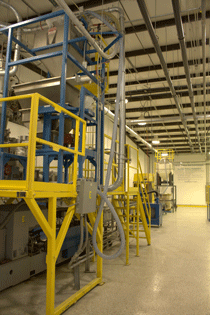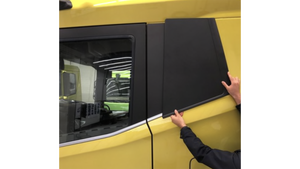Plastics Color Corp. intends to open a fourth plant, this time in California. The new facility, scheduled to open this fall, will handle increased business from the food processing, medical device, medical packaging, and pharmaceutical businesses, according to the company. Sun Valley has an extensive manufacturing base and is home to plastics processors including Valley Manufacturing & Engineering, Exacta Plastics, Circle K Plastics, JB Custom Mold Manufacturing Inc., and more.
May 10, 2010
Plastics Color Corp. intends to open a fourth plant, this time in California. The new facility, scheduled to open this fall, will handle increased business from the food processing, medical device, medical packaging, and pharmaceutical businesses, according to the company. Sun Valley has an extensive manufacturing base and is home to plastics processors including Valley Manufacturing & Engineering, Exacta Plastics, Circle K Plastics, JB Custom Mold Manufacturing Inc., and more.
Plastics Color Corporation (PCC; Calumet City, IL) already supplies color concentrates and additive masterbatches from its facilities in Asheboro, NC, Calumet City, and Nanjing, China. The new 30,000-ft2 facility, located in Sun Valley, will employ 14 when it opens. It will also warehouse PCC's black and white masterbatches for quick delivery to its customers in the region. PCC's president, Doug Borgsdorf, says the company has bought the building and hired the employees, and has two twin-screw extrusion lines on order plus the necessary auxiliary equipment.
|
Shown is PCC's plant-within-a-plant line at its facility in North Carolina. |
The new plant is being modeled after the company's "plant-within-a-plant" concept of segregated clean compounding, which it implemented at its Asheville plant in 2008. According to Borgsdorf, the concept involves running a separate, self-contained operation within its larger facility, almost like a lab line but with much greater scale, so that PCC can evaluate manufacturing techniques, including just-in-time production, under actual conditions. The concept relies heavily on automation, limiting human interaction (and the resulting chance of contamination) from the process.
Clare Goldsberry's coverage of PCC's revamped marketing program should be required reading for any executive who has a hard time justifying his marketing program. Read that article here.
About the Author(s)
You May Also Like



